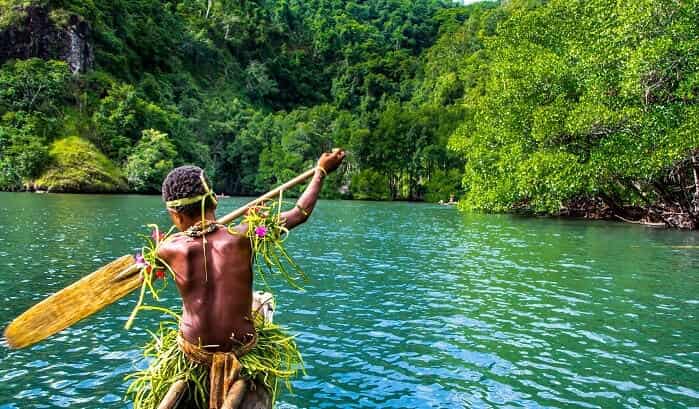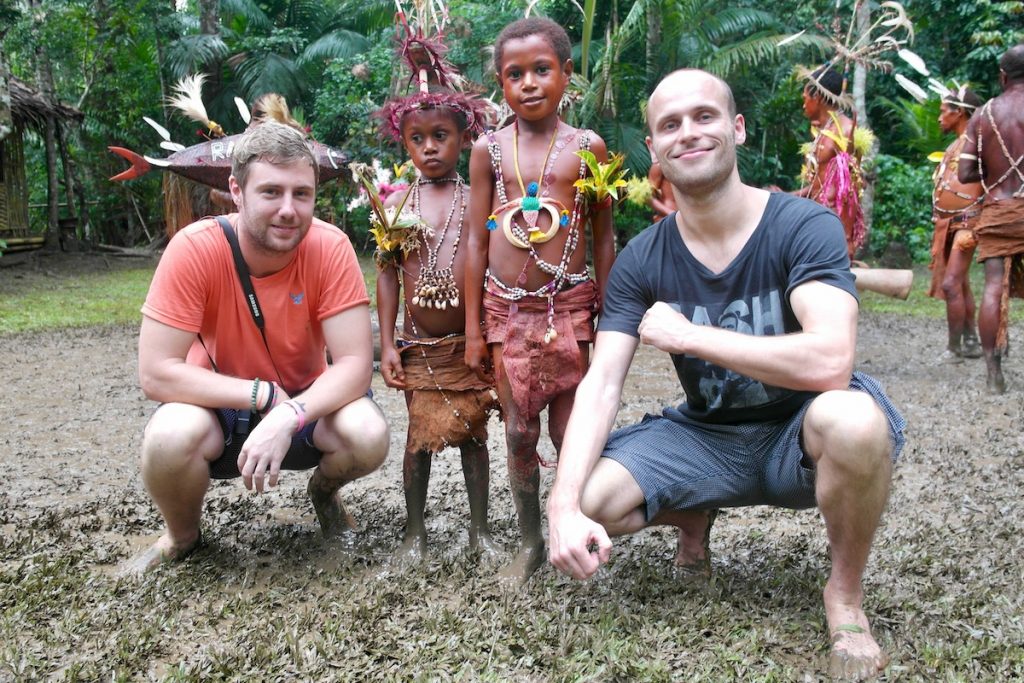
Papua New Guinea
Papua New Guinea Nestled in the southwestern Pacific Ocean, Papua New Guinea (PNG) is a land of extraordinary diversity, boasting stunning landscapes, vibrant cultures, and a rich tapestry of traditions. In this article, we embark on a journey to explore the captivating allure of this unique island nation.
A Land of Breathtaking Beauty
Papua New Guinea is renowned for its breathtaking natural beauty, characterized by rugged mountains, lush rainforests, pristine beaches, and vibrant coral reefs. From the towering peaks of the Highlands to the idyllic shores of the Sepik River, the country’s diverse landscapes offer endless opportunities for exploration and adventure.

Cultural Diversity and Tradition
Home to over 800 distinct languages and a myriad of ethnic groups, Papua New Guinea is celebrated for its cultural diversity and rich traditions. Each community boasts its own unique customs, rituals, and artistic expressions, from intricate woodcarvings and vibrant textiles to mesmerizing dance performances and elaborate ceremonies.
Traditional Village Life
In many parts of Papua New Guinea, traditional village life remains deeply rooted in everyday existence. Villagers live in close harmony with nature, relying on subsistence farming, fishing, and hunting for their livelihoods. Community gatherings, known as “sing-sings,” provide opportunities for storytelling, music, dance, and the sharing of knowledge across generations.
Adventure and Exploration
For adventurous travelers, Papua New Guinea offers a wealth of exhilarating experiences, from trekking through dense rainforests and scaling towering peaks to diving among pristine coral reefs and exploring remote tribal villages. The country’s untouched wilderness and diverse ecosystems provide a playground for outdoor enthusiasts seeking thrills and discovery.
Conservation and Biodiversity
Papua New Guinea is renowned for its exceptional biodiversity, with vast tracts of pristine rainforest teeming with unique flora and fauna. The country is home to an astonishing array of species, including the iconic birds of paradise, tree kangaroos, and the world’s largest butterfly, the Queen Alexandra’s birdwing. Conservation efforts are underway to protect these invaluable natural resources for future generations.
Challenges and Opportunities
Despite its natural beauty and cultural richness, Papua New Guinea faces numerous challenges, including poverty, environmental degradation, and social issues. However, the country also presents significant opportunities for sustainable development, ecotourism, and cultural preservation, offering a glimpse into a world of unparalleled beauty and diversity.
Conclusion: Embracing the Spirit of Papua New Guinea
Papua New Guinea captivates the imagination with its stunning landscapes, vibrant cultures, and warm hospitality. As a treasure trove of natural and cultural wonders, it invites travelers to embark on a journey of discovery and Enlightenment, Immersing themselves in the timeless allure of this enchanting island nation.
Understanding the Economic Challenges of Papua New Guinea
Papua New Guinea, despite its vast natural resources and cultural Richness, Grapples with Persistent poverty and economic hardship. In this article, we delve into the complex factors contributing to the country’s poverty and explore potential pathways toward economic development.

Historical Context
The roots of Papua New Guinea’s economic challenges can be traced back to its colonial history. Decades of colonial rule, first under Germany and later under Australia, left deep-seated structural imbalances and inequalities within the country’s economy.
Dependence on Extractive Industries
Papua New Guinea’s economy is heavily reliant on extractive industries, particularly mining, logging, and oil and gas extraction. While these industries generate significant revenue, they have also been associated with environmental Degradation, social Displacement, and unequal distribution of wealth.
Weak Governance and Corruption papua new guinea
Weak governance and endemic corruption have hampered Papua New Guinea’s development efforts. Transparency International consistently ranks the country among the most corrupt in the world, undermining public trust, investor confidence, and the effectiveness of public institutions.
Geographic and Infrastructural Challenges
Papua New Guinea’s rugged terrain and isolated geography present significant challenges to infrastructure development and service delivery. Many rural communities lack access to basic amenities such as clean water, electricity, healthcare, and education, exacerbating poverty and inequality.
Socioeconomic Inequality
Socioeconomic inequality is a pervasive issue in Papua New Guinea, with disparities in income, education, and Healthcare Widening between urban and rural areas, as well as among different ethnic groups. Limited access to economic opportunities, coupled with social Marginalization, Perpetuates cycles of poverty and exclusion.
Climate Vulnerability papua new guinea`
Papua New Guinea is highly vulnerable to the impacts of climate change, including rising sea levels, extreme weather events, and environmental degradation. These challenges threaten livelihoods, food security, and economic stability, particularly for rural and coastal communities dependent on agriculture and natural resources.
Pathways to Economic Development
- Addressing Papua New Guinea’s economic challenges requires a multifaceted approach that prioritizes sustainable and inclusive development. Key strategies may include:
- Diversification of the Economy: Promoting economic diversification beyond extractive industries, including agriculture, tourism, and small-scale entrepreneurship.
- Investment in Human Capital: Enhancing access to quality education, healthcare, and vocational training to empower individuals and build a skilled workforce capable of driving economic growth.
- Improvement of Governance: Strengthening institutions, promoting transparency and accountability, and combating corruption to create an enabling environment for investment and economic development.
- Infrastructure Development: Investing in critical infrastructure, including roads, ports, and Telecommunications, to improve connectivity, facilitate trade, and unlock the potential of remote regions.
Conclusion
Papua New Guinea faces significant economic challenges rooted in historical legacies, governance issues, Socioeconomic Disparities, and environmental vulnerabilities.
1. Economic Vulnerability
Papua New Guinea’s economy is heavily dependent on extractive industries such as mining, logging, and petroleum. This overreliance makes the economy vulnerable to fluctuations in global commodity prices, exposing the country to economic instability and shocks.
2. Weak Infrastructure
The country’s infrastructure is Underdeveloped and Inadequate, particularly in rural and remote areas. Poor road networks, limited access to electricity and clean water, and Deficient Healthcare and education facilities impede Socio-Economic development and Exacerbate Inequalities.

3. Governance and Corruption
Weak governance, institutional inefficiency, and widespread corruption pose significant challenges to Papua New Guinea’s development efforts. Corruption undermines public trust, erodes investor confidence, and diverts resources away from essential services and infrastructure projects.
4. Socio-economic Inequality
Socio-economic inequality is pervasive, with significant disparities in income, education, and healthcare between urban and rural areas, as well as among different ethnic groups. Limited access to economic opportunities perpetuates cycles of poverty and marginalization.
5. Health Challenges
Papua New Guinea faces numerous health challenges, including high rates of infectious diseases such as malaria, tuberculosis, and HIV/AIDS. Limited access to healthcare facilities, trained medical professionals, and essential medicines further exacerbates these health disparities.
6. Environmental Degradation
Environmental degradation, including deforestation, pollution, and loss of biodiversity, threatens Papua New Guinea’s natural resources and ecosystems. Unsustainable logging practices, mining activities, and urbanization contribute to habitat destruction and ecological imbalance.
7. Climate Change Vulnerability
As a Pacific island nation, Papua New Guinea is highly vulnerable to the impacts of climate change, including rising sea levels, extreme weather events, and ocean acidification. These climate-related challenges Exacerbate food Insecurity, Displacement, and economic disruption.
8. Ethnic Tensions papua new guinea
Ethnic diversity is both a strength and a challenge in Papua New Guinea, as historical tensions and conflicts between different ethnic groups persist. Inter-communal violence, land disputes, and social unrest hinder social cohesion and stability.
9. Limited Access to Education
Despite efforts to improve access to education, Papua New Guinea still faces challenges in providing quality education to its population. Inadequate infrastructure, teacher shortages, and cultural barriers contribute to low literacy rates and educational Disparities.
10. Gender Inequality
Gender inequality remains a significant issue in Papua New Guinea, with women and girls facing barriers to education, employment, and participation in decision-making processes. Gender-based violence, early marriage, and limited access to healthcare further compound these challenges.
Conclusion
Papua New Guinea grapples with a range of challenges that hinder its Socio-Economic progress and development. By Addressing these challenges, Papua New Guinea can unlock its full potential and create a brighter future for its people.
Read More Article About “J. Robert Oppenheimer: A Portrait of Scientific Brilliance and Moral Dilemmas“








